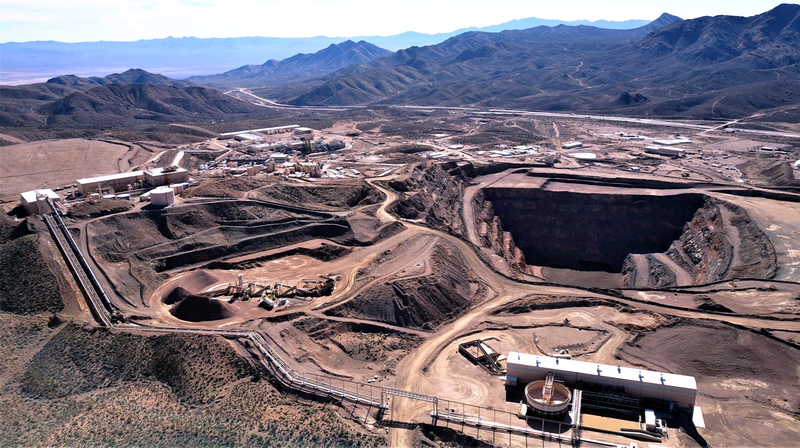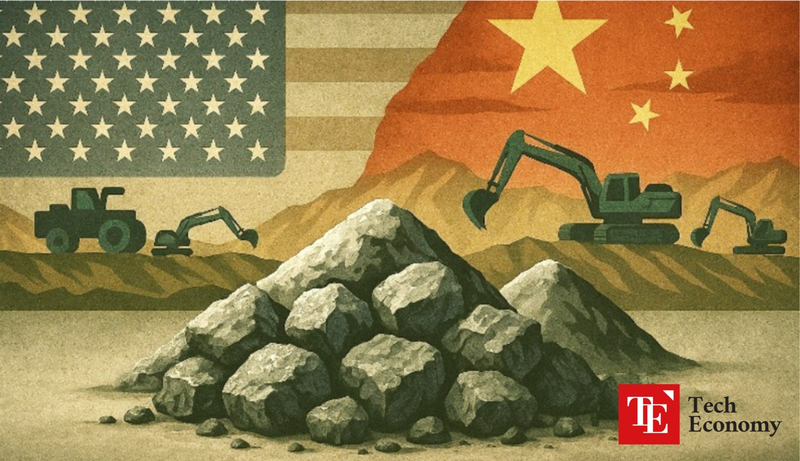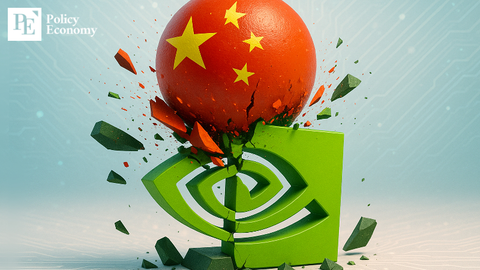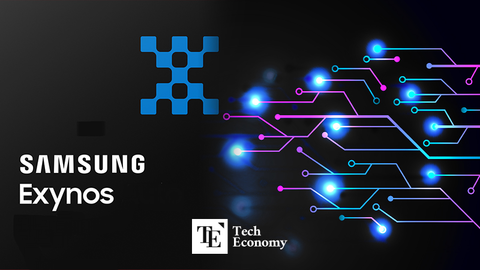U.S. Accelerates Rare Earth Supply Chain Overhaul with Aggressive Price Guarantees for Private Sector
Input
Modified
Navarro Requests Cooperation from Apple·MS·Corning, and Other Major Tech Firms Department of Defense Invests $400 Million in Domestic Rare Earth Firm “Supply Chain Will Be Dominated Quickly and Efficiently in ‘Trump Time’”

U.S. President Donald Trump has launched a full-scale effort to protect the domestic rare earth industry, countering China’s dominance in the sector. The Trump administration is expanding direct support for U.S. rare earth producers and preparing to offer multibillion-dollar tax incentives to major technology firms such as Apple and Microsoft if they reduce their reliance on Chinese rare earths and cooperate with domestic suppliers. The White House explained that the initiative is part of a “Trump-style execution strategy” aimed at quickly and efficiently overhauling the critical mineral supply chain from mining to final consumer products.
Comprehensive Plan to Foster Rare Earth Ecosystem
According to Reuters on August 1 (local time), Trump’s trade and manufacturing advisor Peter Navarro and David Copley, the National Security Council’s director of strategic initiatives, held a closed-door meeting on July 24 with more than ten executives from major tech companies and rare earth producers, including Apple, Microsoft, and Corning, to discuss ways to reduce China’s dominance in the rare earth supply chain. These companies are major consumers of rare earths, which are used in the production of key components for smartphones, semiconductors, and telecommunications equipment. Navarro strongly urged participants to make full use of the multibillion-dollar incentive programs included in President Trump’s tax and spending legislation.
Navarro is also said to have delivered a sweeping support plan to rare earth companies present at the meeting, aiming to boost the production of rare earth elements and permanent magnets. A key agenda item was the Department of Defense’s $400 million equity investment in rare earth mining company MP Materials and the accompanying agreement to guarantee a minimum purchase price. MP Materials is the only rare earth firm in the U.S. with the capability to carry out mining, refining, and permanent magnet production. According to the agreement disclosed last month, the guaranteed minimum price for MP Materials is nearly double the current market rate.
In a statement issued under Navarro’s name, the White House emphasized that “the minimum price guarantee applied to MP Materials is not a one-time measure,” and that “other companies will be granted the same benefit in the future.” It added, “Our goal is to restructure the entire supply chain for critical minerals—from mines to final consumer products—not just for rare earths,” and stressed that “it will be implemented in the efficient and fast-paced manner of ‘Trump Time.’” Reuters analyzed that this indicates a pace comparable to the “Operation Warp Speed” vaccine development initiative launched during the COVID-19 pandemic.

Despite Concerns over Excessive Intervention, Immediate Impact Expected
Some critics argue that the Pentagon's acquisition of a 15% stake in MP Materials, making it the company’s largest shareholder, constitutes excessive market intervention. The Financial Times reported that while the White House has described the investment as a move to reduce U.S. reliance on Chinese rare earths essential for advanced military equipment, even within the administration, concerns are emerging that the policy resembles “Chinese-style state intervention.” Direct federal investment in private companies is extremely rare and raises concerns about market distortion through preferential treatment. At the closed-door White House meeting with Navarro on August 1, industry stakeholders reportedly voiced concerns that MP Materials’ dominance could undermine competition in the rare earth sector.
Particularly controversial is the minimum price guarantee mechanism. Under the agreement, the Pentagon guarantees a floor price of $110 per kilogram for the two most in-demand rare earth elements—neodymium (Nd) and praseodymium (Pr). If the market price falls below this threshold, the Department of Defense will pay MP Materials the difference in cash. Conversely, if the market price exceeds $110, the company must return 30% of the excess profit to the Pentagon. The Center for Strategic and International Studies (CSIS) stated that “the Pentagon has, overnight, acquired substantial leverage in the Nd-Pr market, further unsettling the global rare earth ecosystem,” and noted that “this level of price interference is effectively a replica of China’s state-owned industrial model.”
Despite the controversy, the agreement is gaining bipartisan support from both Wall Street and Washington because of its potential to deliver rapid and tangible results in a rare earth market long dominated by China. Eric Raven, former Assistant Secretary of the Navy under the Biden administration, positively assessed the move, saying, “The Department of Defense, now led by executives with private-sector experience, is taking an entirely new approach.” Ryan Castilloux, founder and managing director of rare earth consultancy Adamas Intelligence, also commented, “The Pentagon’s $110/kg floor price will serve as a new gravitational anchor in the rare earth industry,” and added, “This pricing deal, which takes effect immediately, will have a globally positive ripple effect.”
No Actual Implementation Despite China’s Agreement to Ease Export Controls
The Trump administration’s unusual move to intervene directly in the private market stems from the structural problem of China’s overwhelming dominance in the rare earth industry. China currently controls 90% of global rare earth supply, driven by aggressive pricing strategies. Under Trump's second term, as tensions with China escalated, Beijing began requiring government approval for the export of seven rare earth elements and related permanent magnets starting April 4. Although other countries are included under these new regulations, the move effectively targets the U.S., using rare earth export controls as a negotiation tool.
The market responded immediately. The international price of dysprosium surged by 20.4%, from $230.5/kg on April 3 (just before the announcement) to $277.5/kg by April 10. Dysprosium is an essential material for enhancing motor performance and reducing the weight of electric vehicles, and demand among major EV manufacturers continues to rise. Under these circumstances, China's export restrictions pose a significant threat. For example, the Alliance for Automotive Innovation (AAI), which represents the U.S. automobile industry, sent a confidential letter to the Trump administration following China's move, warning that “rare earth supply shortages could halt production at U.S. factories.”
China does not have a monopoly on rare earth reserves. According to the U.S. Geological Survey (USGS), China held the world’s largest reserves at 44 million tons as of 2023, but Vietnam (21.2 million tons), Brazil (21 million tons), and Russia (10 million tons) also possess significant deposits. The U.S. itself holds 1.8 million tons. The real issue lies in refining technologies and environmental regulations. Since 1986, China has developed rare earth processing under its “Mineral Resources Law,” and addressed radiation and wastewater issues through relaxed regulations. In contrast, advanced economies like the U.S. have outsourced rare earth production to developing countries due to environmental concerns.
Given these challenges, it appears unlikely that Western nations can quickly regain control of the rare earth supply chain from China. Indeed, during the second round of high-level U.S.-China trade talks in June, the Trump administration partially walked back its planned revocation of student visas for Chinese nationals in exchange for an agreement from China to ease rare earth export controls. At the time, U.S. Secretary of Commerce Howard Lutnick stated, “In response to China’s restrictions on rare earth exports, the U.S. will proportionally relax its semiconductor export controls and student visa revocation plans.” However, despite the agreement to implement these measures immediately, both sides remain in a state of deadlock.





















